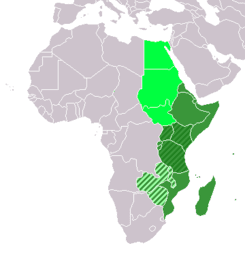Changes are afoot in East Africa as the region strives towards making the flow of freight form the ports into the hinterland more efficient.
Trade Mark East Africa whose aim is growing prosperity in East Africa through trade sent the following update regarding the latest developments in the region. Twenty five agencies have signed the Mombasa Port Community Charter, a binding pact with the aim of improving efficiency at the port of Mombasa. The organizations are drawn from government agencies, private sector, civil society and interest groups who are key players on the Northern Corridor. They include the Kenya Revenue Authority (KRA), Kenya Maritime Authority (KMA), Kenya National Police Service, Kenya Private Sector Alliance (KEPSA), Shippers Council of East Africa among others. One of the major targets of the agreement is to completely eliminate cargo delays at the Port of Mombasa by 2016. According to Trade Mark East Africa (TMEA) Kenya Country Director Chris Kiptoo, the delays are due to lack of synergy among the key stakeholders involved in clearing cargo. Plans are afoot to construct a six-lane superhighway connecting Mombasa and Kigali. The road is scheduled to be completed by 2024. In a charter agreed upon by 13 government agencies and departments, the Kenya National Highways Authority (Kenha) promised to work with roads agencies from Uganda and Rwanda in constructing the 1,600km road within three to ten years. This initiative is part of on-going efforts to ease congestion on the Northern Transport Corridor. The project is also being carried out in anticipation of increased transit cargo in East Africa as regional economies continue to post robust growth.Operations at the one stop border post (OSBP) between Tanzania and Burundi are one step closer with the signing of a construction agreement. The contract between Trade Mark East Africa (TMEA) Burundi and Chinese Civil Engineering Construction Corporation (CCECC)-Rwanda for the construction of Kobero OSBP was signed at the TMEA Burundi office. Traders in particular have welcomed this move which will reduce time and costs it takes to cross the border, thus improving on their overall bottom-line. Stakeholders are keen for an efficient and timely implementation.
Finally, importers and exporters will benefit from a new system put in place by the the Kenya Revenue Authority’s Customs Services Department. Dubbed ‘Authorized Economic Operators’, it gives operators preferential treatment in the processing of transactions.






